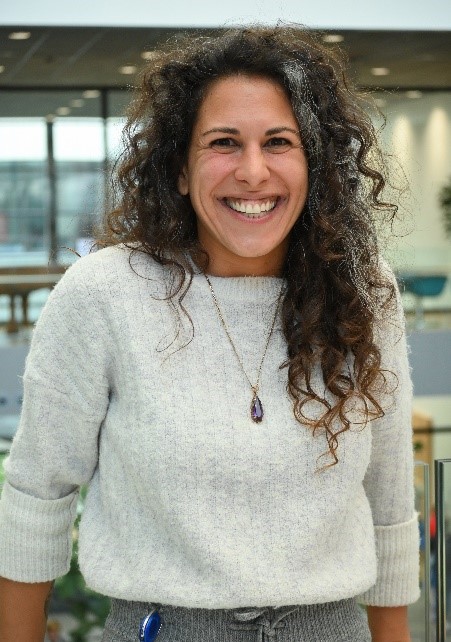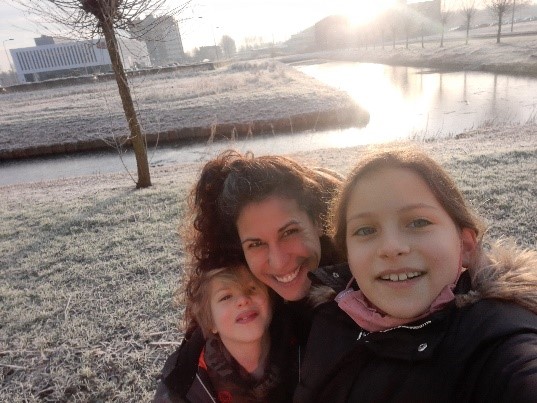Parents and caregivers: a conversation with three colleagues
DEWIS talked with three young parents about combining parenting with pursuing an academic career. What can we do to create a more inclusive working environment where parents can grow and flourish in their careers?
An academic career and a family: can you have both?
Samuel Kernan Freire is a PhD-student at the faculty of Industrial Design Engineering. He has a two-year-old daughter and is expecting his second child in August.
Samuel: “I wasn’t quite sure if the two were compatible. The positive reaction of my supervisor reassured me. Of course, I need to manage my time well but the most important thing is to have a supportive supervisor.”
When I got pregnant during my PhD studies, I was privileged with a supportive promotor. His attitude was very clear: becoming a parent is a fact of life. He supported me in my wish that my children could attend my PhD defence. The youngest was two. I remember my son walking towards me and a family member picked him under his raised arms. All the committee members loved it!
Prof. Zofia Lukszo, DEWIS Chair
Ema Gusheva moved from North Macedonia to the Netherlands with her husband to do a PhD at the faculty of Technology, Policy and Management and has a one-year-old daughter.
Ema: “Having a baby during PhD studies is totally acceptable at my department. I have to say that combining parenting with my academic career is easier than I thought. I work fewer hours but I am very productive. I spend less time on social interactions; less time on my laptop, reading and doubting myself; less time on introspection and I do not have writer’s block. I sit behind my computer typing away and sending drafts full of typos [smile]. I don’t have time to be very self-critical.”
Michal Shemesh is from Israel and started working as an Operational Manager after her postdoctoral research at the faculty of Applied Sciences. Her children are eight and twelve years old.
Michal: “I never had conscious deliberations about whether to start a family. This decision is very personal to me. Having children is encouraged in Israeli society, so this might be a cultural difference. Children are part of life and you organise your life around the family. During my PhD, when my babies were small, they accompanied me whenever necessary, i.e. when studying or doing labwork. I would take them to the research institute in cases of emergency or after day-care was closed and it was never considered strange.”
How do you balance work and private life?
Samuel: “People are mostly speaking from a perspective without caregiving responsibilities. I think there could be more awareness around this, so we can be more mindful and inclusive. My supervisor and colleagues have been very accommodating but, in general, there is room for improvement. For example, be more mindful when planning social events.
Ema: “My supervisor told me about conferences with day-care facilities but they don’t seem to be in my field. Where are they!? It would be great to have that option. Last time, my mother came with me to take care of my daughter. I can be more proactive in searching for networking opportunities and suggesting collaborations. I already have some ideas for shifting meetings and social gatherings so they better fit my schedule. In addition, I’m inspired to bring my daughter to work if necessary.”
Michal: “Social interactions can be important for scientific careers. New collaborations might start or an interesting foreign visitor might attend. Inclusion gives you the freedom to be an excellent scientist. Inclusion means having a mind-set in the working environment where parenting is accepted as an important part of life. Accept mothers bringing their babies to conferences. Plan social events when parents are available.”
"Universities are amazing places full of role-models and inspiration for children. It would be great if we had more welcoming spaces, where children could drop by and feel comfortable and not be intimidated by the huge amount of locked doors and unwelcoming messages. Showing our workplaces to our children is an educational experience for them and gives them examples of future possibilities. Flexible work balance is important, but so is the opportunity to bring your children to work because they are part of your life.”



